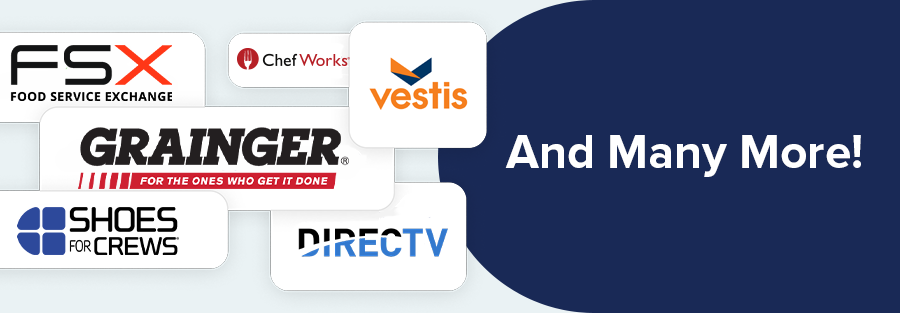Are hidden costs in your non-food supplies quietly draining your profits?
From uniforms to utilities, these overlooked expenses can quickly snowball, eating away at your hard-earned revenue. In an industry where margins are already razor-thin, managing every dollar matters.
With food costs soaring by over 20%, it’s not just your ingredients that are affecting your bottom line. Non-food expenses—like cleaning supplies, energy bills, equipment, and more—play a critical role in your overall cost structure. As a foodservice operator, you’re constantly seeking ways to save, and focusing solely on food costs isn’t enough. To truly maximize profitability, you need a strategy that reduces costs across every aspect of your operation.
Why Non-Food Supplies Matter More Than You Think
To truly gain control of your costs, it’s essential to look beyond the kitchen. Non-food expenses—things like equipment, uniforms, cleaning supplies, and utilities—are often the silent culprits behind shrinking profit margins. These costs can be hard to track and even harder to negotiate, leaving many operators paying more than they should.
That’s where Buyers Edge Platform comes in.
Unlocking Savings with Buyers Edge Platform
Our Beyond Broadline Programs are designed to help foodservice operators like you uncover savings on non-food supplies without the headache of doing it alone. We leverage our industry expertise and purchasing power to secure exclusive discounts across a wide range of essential items and services.
Whether it’s reducing energy bills, getting better rates on uniforms, or cutting down waste removal expenses, we’ve got you covered.
Here’s how Buyers Edge Platform can help you save on non-food supplies:
- Front-of-House Essentials: Every detail matters when creating a positive customer experience. With our program, you’ll enjoy significant discounts on uniforms, signage, TV packages, payment processing, and more. These items, often overlooked, can make a big difference in both your image and your costs.
- Back-of-House Operations: Efficiency in the back-of-house is just as critical to keeping operations smooth and cost-effective. We provide savings on sanitation, pest control, waste removal, and utilities, ensuring your kitchen runs efficiently without inflated expenses.
- Employee Perks: Your team is your most valuable asset. Enhance their benefits with discounts on shoes and apparel from top brands like ChefWorks and Skechers, along with savings on cell phone plans through Verizon and Sprint. A happy team means better service and a thriving business.
Why These Savings Matter
Every dollar saved in non-food supplies is a dollar that can be reinvested into what truly drives growth: menu innovation, staff training, and improving the customer experience. By strategically managing non-food spending, operators can better control their overall operational costs and maintain healthier profit margins. This holistic approach allows you to focus on building your business, not just keeping up with rising expenses.
Long-Term Benefits
Beyond the immediate cost reductions, investing in the right non-food supplies—such as energy-efficient equipment or durable uniforms—leads to long-term savings. Quality purchases require fewer replacements, reducing waste and supporting sustainability efforts, which also appeal to eco-conscious consumers.
By partnering with Buyers Edge Platform, you gain access to a comprehensive suite of solutions that go beyond food cost savings. We help you streamline your entire operation—from front-of-house essentials to back-of-house efficiencies—so you can reinvest those savings into what matters most: growing your business, improving the customer experience, and ensuring long-term success.


Ready to Start Saving?
Start optimizing your spending today. Log in to your Buyers Edge Platform account and explore the full potential of our Beyond Broadline Programs.
Not yet a member? Fill out the form below, and one of our industry experts will reach out to guide you through the benefits of joining Buyers Edge Platform. It’s time to stop letting hidden costs chip away at your profits—take control of your expenses with Buyers Edge PlatformBeyond Broadline programs.
